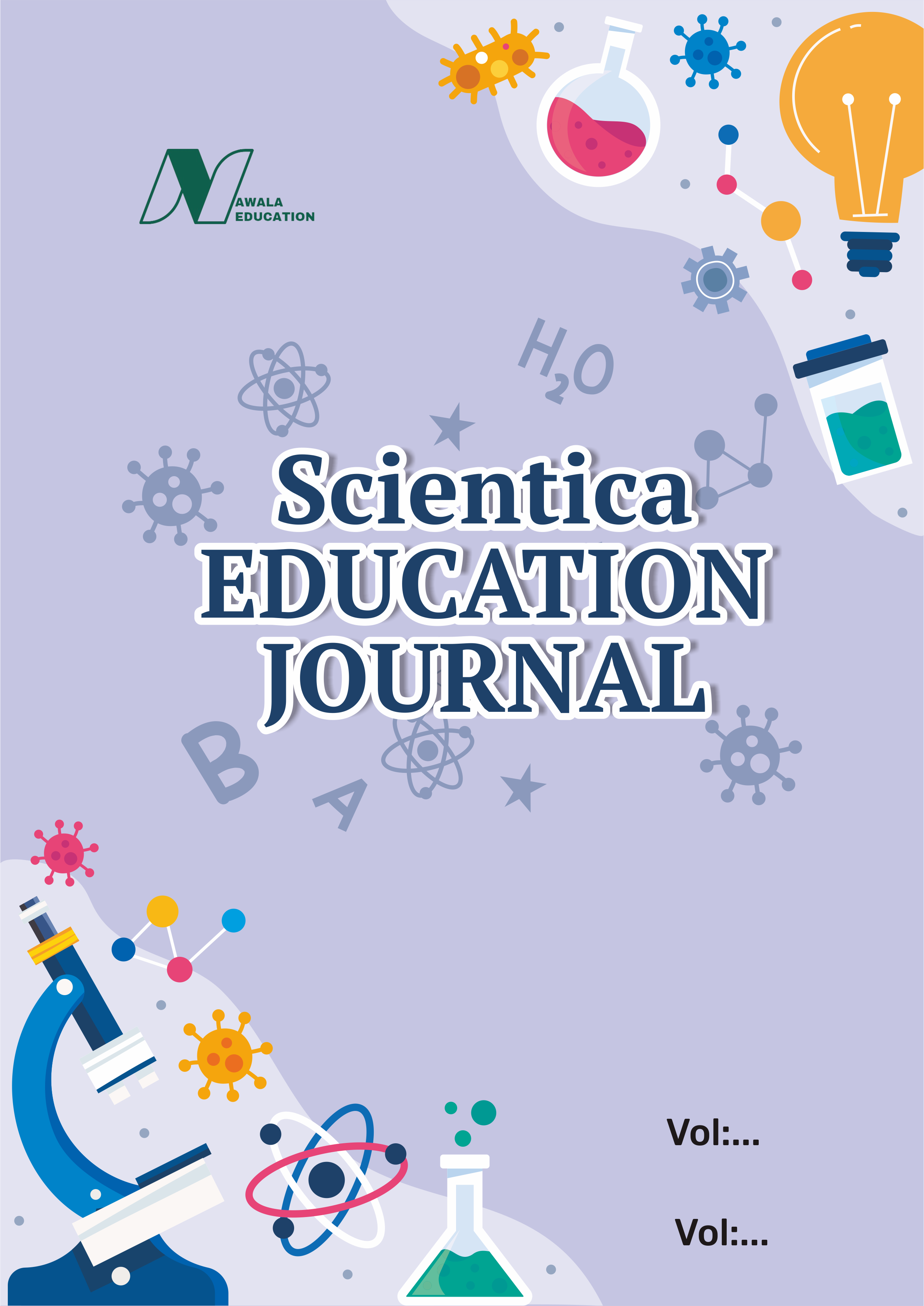The Role of Nature Education in Building Students' Emotional Connections with the Environment
DOI:
https://doi.org/10.62872/w3q1sb23Keywords:
Nature Education, Emotional Relationships, EnvironmentAbstract
Nature education has great potential in forming emotional connections between students and their environment. In today’s educational context, where urbanization and modernization are increasingly dominant, it is important to refocus on direct experiences in nature. Through this approach, students not only learn about ecosystems and biodiversity, but also develop a sense of empathy and responsibility towards the environment. Direct experiences, such as camping, exploring the forest, or doing conservation projects, provide opportunities for students to actively engage with nature. This study aims to explore how nature education can strengthen students’ emotional ties to their surroundings. Using the Systematic Literature Review (SLR) method, this study analyzes various existing literatures to understand the impact of nature education on students’ attitudes and behaviors. The findings of this study indicate that experiences in nature not only increase environmental awareness but also create a deeper connection between students and nature. Students who engage in nature education tend to show positive attitudes towards environmental conservation and are more active in conservation activities. In addition, these experiences can also improve students’ mental health by reducing stress and increasing emotional well-being. Thus, nature education not only functions as an educational tool, but also as a medium to form a generation that is more concerned and responsible for the environment, which is very important amidst the environmental challenges faced today.
Downloads
References
Ambarita, J., Simanullang, M. P. K. P. S., & Adab, P. (2023). Implementasi Pembelajaran
Berdiferensiasi. Penerbit Adab.
Angela, V. F. (2023). Strategi Pengembangan Ekowisata dalam Mendukung Konservasi
Alam Danau Tahai. JIM: Jurnal Ilmiah Mahasiswa Pendidikan Sejarah, 8(3),
-993.
Anindita, N., & Sidabutar, M. (2020). Pemanfaataan lingkungan berbasis alam sebagai
sumber belajar kelas V di SD 1 Trirenggo Bantul. Epistema, 1(1), 13-22.
Bhoki, H., & Are, T. (2024). Merancang Pendidikan Berbasis Ekologi Di Sekolah Demi
Pelestarian Ibu Bumi. CV. Ruang Tentor.
Harefa, D., & Sarumaha, M. (2020). Teori pengenalan ilmu pengetahuan alam sejak dini. Pm
Publisher.
Hayati, R. S., Jariah, A., Imam, Y. K., Yoluut, M. A., & Kusmawan, I. (2023). Pendidikan
Lingkungan melalui Virtual Marine Edutourism bagi Siswa Sanggar Belajar
Sungai Penchala, Malaysia. Buletin KKN Pendidikan, 5(1), 84-95.
https://doi.org/10.23917/bkkndik.v5i1.22555
Humaida, N. (2024). Dasar-Dasar Pengetahuan Lingkungan Berbasis Perubahan Iklim
Global. UrbanGreen Central Media.
Islami, G. (2024). Arsitektur Dan Kesehatan Mental: Menciptakan Lingkungan Yang
Mendukung Kesejahteraan Jiwa. WriteBox, 1(3).
Lasaiba, I. (2023). Menggugah Kesadaran Ekologis: Pendekatan Biologi untuk Pendidikan
Berkelanjutan. Jendela Pengetahuan, 16(2), 143-163.
Naldi, A., Mursyid, F. H., Adami, F. F., Alawiah, Z., Dinda, R., & Harahap, P. Y. (2023).
Kontribusi Pendidikan Agama Islam Dalam Mempertahankan Kelestarian
Lingkungan Di Era Tantangan Masyarakat Modern. At-Tazakki: Jurnal Kajian
Ilmu Pendidikan Islam dan Humaniora, 7(2), 283-300.
Nastiti, P. T., & Wathon, A. (2019). Membangun Pembelajaran Berbasis Proyek Melalui
Kegiatan Bermain Alat Permainan Edukatif. Sistim Informasi Manajemen, 2(1),
-187.
Nurjaman, K., Maryam, S., Ahgitsnaa, F. A., & Indrawan, R. A. (2023). Mewujudkan
Kesadaran Masyarakat Akan Lingkungan Melalui Program Lomba Tong
Sampah. Proceedings Uin Sunan Gunung Djati Bandung, 3(2), 387-396.
Purnawanto, A. T. (2024). Mambangun Kesadaran Lingkungan Untuk Mitigasi Perubahan
Iklim: Perspektif Islam. Jurnal Pedagogy, 17(1), 1-19.
Putri, A. R. W., Andriani, D. N., & Nurba'in, K. A. (2024, July). Implemetasi Program
Kampus Mengajar untuk Meningkatkan Literasi dalam Pembelajaran IPAS pada
SD Negeri Krajan 2. In Seminar Nasional Sosial, Sains, Pendidikan, Humaniora
(SENASSDRA) (Vol. 3, No. 3, pp. 256-262).
Rachmawati, A. (2021). Belajar Bersama Alam sebagai Bentuk Penerapan Ekoliterasi pada
Sekolah Alam. Cendekiawan, 3(2), 79-91.
Sanjaya, A. A., Sulaiman, A., & Rokhmah, S. N. (2023). Pengaruh environmental awareness
terhadap gratitude to nature di sekolah menengah. Cognicia, 11(2), 149-157.
Sausan, A. N., Safitri, A. G., Jannah, M., Haqi, Y. M., & Mashudi, E. A. (2023). Model
Pendidikan Discovery Learning dalam Pendidikan Anak Usia Dini. Asghar:
Journal of Children Studies, 3(2), 133-144.
Sriandila, R., Suryana, D., & Mahyuddin, N. (2023). Implementasi Kurikulum Merdeka di
PAUD Nurul Ikhlas Kemantan Kebalai Kabupaten Kerinci. Journal on
Education, 5(2), 1826-1840.
Suralaga, F. (2021). Psikologi pendidikan: Implikasi dalam pembelajaran.
Suwartiningsih, S. (2021). Penerapan pembelajaran berdiferensiasi untuk meningkatkan hasil
belajar siswa pada mata pelajaran IPA pokok bahasan tanah dan keberlangsungan kehidupan di Kelas IXb semester genap SMPN 4 Monta tahun
pelajaran 2020/2021. Jurnal Pendidikan Dan Pembelajaran Indonesia (JPPI),
(2), 80-94.
Tim, M. K. U., & UNNES, P. (2014). Pendidikan Lingkungan Hidup. Semarang: Pusbang
MKU/MKDK UNNES.
Uno, H. B., & Umar, M. K. (2023). Mengelola kecerdasan dalam pembelajaran: sebuah
konsep pembelajaran berbasis kecerdasan. Bumi Aksara.
Wulan, W., & Wathon, A. (2021). Implementasi Metode Outdoor Learning Untuk
Mengembangkan Kemampuan Fisik Motorik Kasar Anak Usia Dini Kelompok
B Di Ra Muslimat Khadijah Al Huda Patianrowo Nganjuk. Sistim Informasi
Manajemen, 4(1), 181-195.
Downloads
Additional Files
Published
Issue
Section
License
Copyright (c) 2024 Muhammad Arsyad, Nurul Layli R, Gamar Abdullah (Author)

This work is licensed under a Creative Commons Attribution-ShareAlike 4.0 International License.

This work is licensed under a Creative Commons Attribution-ShareAlike 4.0 International License.











